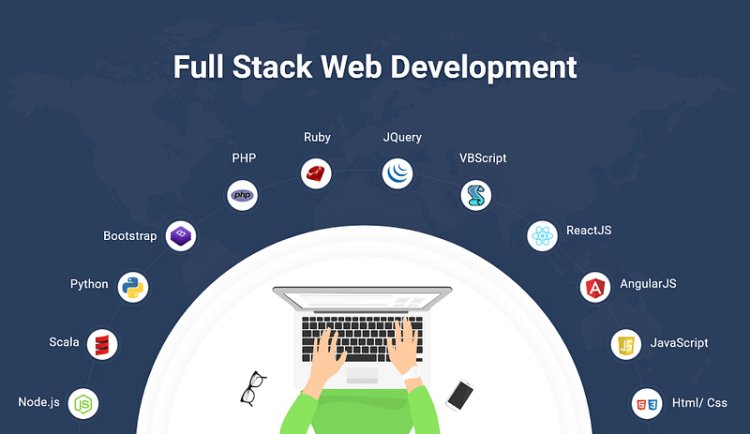7 Ways Generative AI is Reshaping the Future of Ecommerce

Strong 8k brings an ultra-HD IPTV experience to your living room and your pocket.
The rapid growth of artificial intelligence (AI) has had a dramatic impact on several industries, with ecommerce at the vanguard of this transition. Generative AI, a technology capable of automatically synthesizing text, graphics, and even product designs, is one of AI's most significant innovations. As businesses continue to use AI for better customer experiences, more efficient operations, and competitive differentiation, generative AI is proving to be a game changer in the ecommerce industry.
Generative AI in ecommerce is revolutionizing how businesses engage with customers and optimize their operations. By automating content creation, product personalization, and even inventory management, generative AI enables ecommerce brands to deliver tailored experiences and innovative solutions at scale. This powerful technology is helping companies stay ahead of trends and meet the ever-growing demand for dynamic, personalized interactions.
In this article, we look at seven key ways generative AI is altering the future of ecommerce by driving innovation and setting new standards for efficiency and customization.
1. Personalized Customer Experiences with AI-Generated Content
Personalization is critical to ecommerce success, and generative AI is pushing it to new heights. AI can provide highly relevant product recommendations, personalized email campaigns, and even customized product descriptions based on individual user preferences, purchase history, and browsing behavior.
For example, platforms like Amazon and Shopify use AI-driven recommendation engines to enhance customer engagement. Generative AI can craft dynamic content that aligns with user preferences, ensuring a seamless and personalized shopping journey.
2. AI-Powered Chatbots and Virtual Assistants
Conversational AI, driven by generative models, is revolutionizing customer support in ecommerce. AI-powered chatbots and virtual assistants are now capable of handling complex customer inquiries, providing product recommendations, and even facilitating transactions in real time.
Retail giants like Sephora and H&M have successfully integrated AI-driven chatbots into their ecommerce platforms to assist customers with product queries, order tracking, and personalized shopping advice. These AI-driven solutions significantly enhance customer satisfaction while reducing operational costs.
3. Automated Product Descriptions and SEO Optimization
Crafting compelling product descriptions is a time-consuming task, but generative AI simplifies this process by automatically generating high-quality, SEO-optimized content. AI models analyze product specifications, consumer trends, and competitive insights to create unique, engaging, and keyword-rich descriptions that improve search engine rankings.
Platforms like Jasper AI and Copy.ai provide ecommerce businesses with AI-powered content generation tools, helping them scale their product listings efficiently. As a result, businesses can optimize their online presence while maintaining consistency and relevance in their product descriptions.
4. AI-Generated Visual Content and Product Imagery
In a visually driven digital marketplace, high-quality product images and marketing visuals are essential for ecommerce success. Generative AI enables brands to create realistic product images, 3D renders, and even AI-generated models showcasing apparel and accessories.
For instance, fashion retailers use AI-generated virtual models to display clothing on different body types, eliminating the need for costly photoshoots. AI tools like DALL·E and Runway ML empower businesses to create visually stunning and highly customized imagery that resonates with their target audience.
5. Dynamic Pricing Strategies and Demand Forecasting
Pricing optimization is a critical aspect of ecommerce success. Generative AI enhances pricing strategies by analyzing vast amounts of market data, competitor pricing, and consumer demand trends to recommend optimal price points.
Dynamic pricing algorithms powered by AI allow businesses to adjust prices in real time based on demand fluctuations. Leading ecommerce platforms, including Walmart and eBay, leverage AI-driven pricing models to maximize sales and profitability while maintaining a competitive edge.
6. AI-Enhanced Fraud Detection and Security
As ecommerce transactions increase, so do cybersecurity threats. Generative AI plays a crucial role in detecting fraudulent activities by analyzing transactional data patterns, identifying anomalies, and preventing fraudulent transactions in real-time.
AI-powered security solutions like Darktrace and Kount help ecommerce platforms mitigate risks associated with payment fraud, identity theft, and account takeovers. Companies like PayPal and Stripe use AI-driven fraud detection systems to safeguard online transactions, ensuring a secure shopping environment for customers.
7. AI-Driven Supply Chain and Inventory Management
Efficient supply chain management is vital for ecommerce success, and generative AI is optimizing inventory forecasting, logistics planning, and demand prediction. AI algorithms analyze historical data, market trends, and seasonal demand to ensure businesses maintain optimal inventory levels.
Retailers such as Amazon and Zara utilize AI-powered supply chain management tools to automate restocking, reduce wastage, and streamline logistics operations. By leveraging generative AI, ecommerce businesses can enhance efficiency, reduce costs, and improve customer satisfaction through timely deliveries.
8. AI-Driven Content Moderation
As ecommerce platforms grow, so does the need for effective content moderation. User-generated content, including reviews and comments, plays a vital role in building trust and credibility. However, monitoring and moderating this content manually can be time-consuming and prone to errors.
Generative AI can help automate content moderation by analyzing text, images, and videos to identify inappropriate or offensive material. By using AI-driven content moderation tools like Microsoft Content Moderator and Hive Moderation, ecommerce businesses can maintain a positive and professional environment on their platforms while ensuring that customers feel safe and valued.
9. Supply Chain Optimization
The global supply chain is often complex and fraught with inefficiencies, but generative AI is helping businesses optimize their operations. By analyzing data from various sources—such as suppliers, logistics providers, and demand forecasts—AI can generate more accurate supply chain models and predictions.
Generative AI like Blue Yonder and FourKites can also be used to simulate different supply chain scenarios, allowing businesses to identify potential disruptions and make proactive adjustments. This results in faster delivery times, lower operational costs, and improved customer satisfaction.
10. AI-Generated Video Content and Advertisements
Video content is becoming an increasingly important medium in ecommerce marketing, and generative AI is enabling businesses to create high-quality videos at scale. AI tools can automatically generate video ads based on customer preferences, product features, and marketing objectives.
These AI-generated videos can be personalized for individual customers, ensuring that each shopper sees relevant content that resonates with their interests. Additionally, AI-driven video tools like Pictory and Synthesia can optimize the content for different platforms, ensuring maximum reach and engagement.
Conclusion: Embracing the AI-Powered Future of Ecommerce
Generative AI is undeniably transforming the ecommerce landscape by enhancing customer experiences, streamlining operations, and optimizing business strategies. For businesses seeking to implement these cutting-edge solutions, an E-Commerce Development Company plays a crucial role in integrating generative AI technologies into their platforms. From personalized content generation to dynamic pricing and fraud detection, AI-driven innovations are empowering businesses to thrive in a competitive digital marketplace.
Companies that integrate generative AI into their operations will not only improve efficiency but also redefine the future of online retail, delivering seamless, engaging, and secure shopping experiences to consumers worldwide.
Note: IndiBlogHub features both user-submitted and editorial content. We do not verify third-party contributions. Read our Disclaimer and Privacy Policyfor details.







